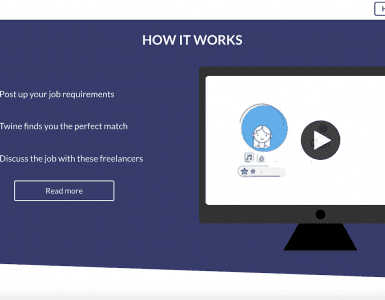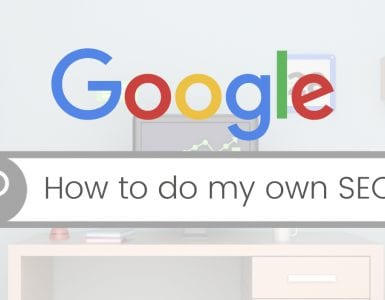So you’ve got your product and your site up and running and you’ve got some customers. Time to celebrate!
Nope, there’s no time for that. Now you need to scale quickly and get revenue ASAP. To do this you need to be delivering great quality content consistently.
The question is, should you hire freelancers to do it or share the tasks with your in house team? There’s no clear cut answer to this, because it depends on who you’ve got in your team and where your company’s at. But here’s some clues that might help you figure out whether it’s time to bring in freelancers or not.
Is it a priority?
The first and most important thing you need to keep asking yourself is whether the content you’re planning to hire freelancers to make for you is a priority. To figure this out you need to look at your customer personas and business milestones and decide whether it’s something that could really move the needle for your business. It’s great to have growth experiments continually on the go, but they need to be projects that could actually bring the company measurable value.
It’s so easy to get distracted by the next shiny project. What about a podcast? Or trying Facebook Live or Instagram Stories? Or making a quiz for your on-boarding? The list is endless and you’ve got to fight to stay focussed and not drown in endless possibilities. Trying to do everything is just useless and it’s a trap we’ve all been in. Putting out 10 projects all at once might feel satisfying but if they’re all rubbish then it’s worse than doing nothing.
Hiring freelancers can make this even more dangerous because it doesn’t cost much at first and it’s low friction. The thing is it’s not just about being efficient, it’s about being effective. So don’t get in the trap of hiring lots of freelancers to make tons of poor quality content that ends up being a total waste of time, when you could pay top quality freelancers to make a few pieces of content that actually bring you revenue. But done right, as Victor Balasa says “The freelance industry can be a catalyst for rapid growth.”
'The freelance industry can be a catalyst for rapid growth.' Click To TweetIt’s a cliche, but creating content for your business really is about quality not quantity. As a startup you don’t have much time or money to waste so staying focused and prioritising effectively are really important habits to develop.
Do you know what you want?
There’s no point starting to look for freelancers to hire for a project unless you actually know what you want. And it’s not enough to say “I need an infographic” or “I’d like a new logo” because that’s just telling them the type of content without providing any details. It’s obvious that they couldn’t go and start working on the project with just that information so it’s not a useful brief.
It’s also not enough to say “I’d like a modern looking stylish logo that’s attractive” because almost everyone wants that and it doesn’t give the freelancer anything to go on. You need to provide the details of exactly what you want it to look like. If you find it hard to do that then find a similar example online and provide a link in your project brief. Just don’t give them a vague sentence and expect them to go away and create a high quality piece of work, that’s really unrealistic and unfair. As David Wither tells Tech.co “telling them you want to create more brand awareness doesn’t mean anything. Telling them you want to boost your brand by doing X, Y, and Z is a task they can get behind.”
'Telling a freelancer you want to create more brand awareness doesn’t mean anything' Click To TweetRemember that you can’t give a freelancer too many details on a project. Going into massive amounts of detail might seem silly to you, but you need to remember that the freelancer you’ll hire will know nothing about your company or the project.
If you’re happy for the freelancer to make all the creative decisions then that’s fine. But you’re being a terrible client if you say it’s up to them and then complain that it’s not how you imagined it. Freelancers can’t read your mind and it’s up to you to give them a clear brief so they can deliver what you need. To do that you need to have the time to do the research and write the brief, so be prepared to factor that time in.
Getting clarity of what you want for each project will come from knowing who your customer is and what value you provide to them. Make sure that everyone in the company is on the same page on this and understands what the purpose of the content is. If you or your colleagues are not clear on this, then you’re not ready to hire a freelancer to create it.
Are you ready?
“If you build it, he will come”, Kevin Costner famously says in the film ‘Field of Dreams’. Except they won’t unless you:
- Go out and actively find them.
- Give them a reason to come (through valuable content or incentives).
- Continue giving them value to make them stick around.
That means getting your prep work done by setting up Google Analytics properly and establishing processes to market the content, such as planning outreach targets, setting up re-marketing channels and creating landing pages to collect emails.
You also need to have clear communication with the freelancer on exactly when you want the content delivered. This means working out where it fits in the editorial calendar, what other content you’re creating that might support it and assigning someone that the freelancer can report to throughout the project.
There’s no point hiring freelancers to create any content if you’ve not got all this together because you’ll just be wasting your time and money and their talent and hard work. If you’re not organising each marketing campaign like a military operation then you’re not making the most out of promo opportunities available and are just winging it. And marketers who make it up as they’re going along aren’t effective.
Can you afford it?
Whether you’ve just raised, or are running low on funds, freelancers are a cost effective way to get high quality content. They cost a lot less than hiring an agency or a full time employee because they’ve not got the overheads. However, you need to make sure you can pay them on time and pay them the budget you’ve agreed. We’ve already pointed out that you’ve got to be clear on what you want, but that also includes being transparent, consistent and reliable in paying them.
One of the worst things you can do to a freelancer is change the requirements or budget of a project half way through. This is not a hobby for them, it’s their career. Think about how a client behaving like that would affect your company. It sucks, huh?!
John Rampton points out another nasty habit people have when hiring freelancers: “Especially in creative fields like photography or writing, a lot of “employers” try to offer “exposure” (and maybe a low rate to boot) because it’s not in the budget to pay a little more. Not only is this offensive to freelancers, you really do get what you pay for.” Exposure doesn’t pay the bills. If you can’t afford it, don’t do it.
'Not only is 'exposure' offensive to freelancers, you really do get what you pay for.' Click To Tweet
You need a specialist
One of the most common reasons why startups hire freelancers is because they need a specialist skill that their in house employees don’t have. If it’s a short term project or a one off then you should hire a freelancer. Whether it’s SEO, PPC, copywriting or UX, you’ll be able to find them, however niche the skill set is.
You need to move quickly
Hiring freelancers lets you test ideas quickly and stop them immediately if they don’t work out. This lack of commitment means that you can try lots of ideas and be really creative without worrying about committing yourself too early.
If you’ve not got time to interview lots of candidates and sort out their paperwork, then hiring a freelancer lets you avoid these burdens. Also, you’ve not got to handhold them through doing the work like you would with an employee so you can focus on the million other things on your task list.
Your in house team are busting a gut
If you’ve got to the point where your in house team are working their socks off and you’re still not delivering enough content or customer support then it might be time to bring in freelancers to take the load off. It might even be worth considering using the freelancers to take the pressure off the full time staff so they can be more creative and strategize.
You don’t need someone working in the office
There’s some work that just requires working in the office, like filing. But if your project doesn’t require someone to be in the same location then it might be worth hiring a freelancer instead.
Why a freelancer and not an agency?
Hiring a freelancer isn’t your only option and might not always be the best choice. Hiring an agency can be really expensive but the advantage is that you have an entire multi-faceted team able to accommodate all of your design, development and marketing needs. This means you can have teams working together on sophisticated projects without the need to project manage it all yourself.
Do you need longer term help?
If your project is clearly defined and short term then it’s perfect for a freelancer. If your project is very long term or you need lots of ongoing work then it might be worth bringing in someone full time instead. Yes, the freelance economy is currently booming, but that doesn’t mean they’re a better option than full time employees for everything. If you need longer term help and need someone that you can constantly check in with and discuss ideas, then a freelancer’s probably not for you. Make sure it’s a project that you can leave them to get on with, without needing to constantly look over their shoulder. A freelancer is not someone that you should be micro managing.
Not sure what freelancers could do for your business? Read this article to find out more.



